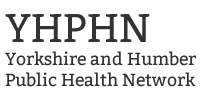Ethnic Minority Groups (EMG)
Analysis from the most recent Active Lives Adult Survey shows that Mixed and White Other adults continue to have the highest activity levels, while South Asian, Black and those with other ethnic origins are the least likely to be active. Many of the patterns in sport and physical activity participation by ethnicities reflect those observed between different faith groups. This highlights the closeness of the relationship that exists between faith and ethnicity amongst many groups and communities.
A systematic review performed by Bournemouth University in 2009 highlighted 4 broad themes for the barriers to physical activity for ethnic minority groups;
1) Perceived personal barriers- Such as motivation, time and cost.
2) Socio-economic barriers- Such as employment quality and type, whether they live in deprived areas.
3) Cultural barriers- Such as language, religion, dress codes.
4) Environmental barriers- Such as access to facilities, green space, travel, air quality.
A similar systematic review from 2017 in Europe concluded that there could be as many as 8 influencing factors;
- Social & cultural environment – Such as the impact of religion and language.
- Psychosocial – Such as the knowledge of physical activity and health, motivation and body confidence.
- Physical environment & accessibility – Such as the access in and to facilities including public transport.
- Migration context – Including years since migration, acculturalisation and prior education.
- Institutional environment – Such as demands of the curriculum, teacher attitudes, occupational pressures and racism.
- Social & material resources – Such as time, education, social position and parental education.
- Health and health communication- Such as prior health conditions, religious fasting, mental health and access to care.
- Political environment- Including local/national political orientation and local health system adaptations.
An important finding was that cultural and religious factors, and in particular those related to gender, were recurring factors across the findings.
Recommendations (Ethnic Minority Groups EMG)
- Focus on local partnerships and peer mentorship to promote self-advocacy (LGBTQ+) (PD)
- Understanding of individual need to adapt a diverse range of activities (PD) (LD)
- Address environmental and social factors to increase inclusion in community services (LD) (MH)
- Development and funding for local leadership programmes (MH) (WM)
- Ensure a safe environment and location which is free from discrimination (SE) (WM)
- Access to gender neutral and women only facilities (LGBTQ+) (SE)
- Mental Health (MH)
- Address environmental and social factors to increase inclusion in community services (LD) (EMG)
- Interventions accessible and adaptable to individual ability (LD)
- Facilities need improved understanding of need
- Interventions are person centred to optimise engagement
- Consider psychological and physical benefits for women in pregnancy (WM)
- Development and funding for local leadership programmes (EMG) (WM)
Ethnicity (Sport England)
